Having thought about improvisation as a central theme in my research, I was excited to find myself in conversation with Alex Fradera at last year’s Uncivilisation festival. Alex is an improvisational performer and psychologist who uses play and creativity as guides for coping with loss of meaning and developing new social infrastructures. Building a wolf trap together, he introduced me to some of the concepts and attitudes behind the art of improvisations. A few months later we met up in London for another conversation, the result of which you see below. Thanks to Alex for agreeing to share our exchange here.
JDG: Do you want to say a little bit about yourself and your work with improvisation, perhaps in relation to Dark Mountain?
AF: I’ve been studying/practicing improvisational theatre for just over five years now. Mainly in the UK but I also studied abroad in Europe, Canada and the States. It is something that I got drawn to through story. That was really the thing that drove me into it: playing roleplaying games and creating fiction with friends led me into improv. More recently I’ve also been interested in the idea of improvisation as one of the modern forms that doesn’t depend on narrative to create something compelling. Or at least strong, explicit, grand narratives to make something watchable. It’s an interest that I’ve had for five years now.
I got introduced to Dark Mountain, I guess, from the inception. I saw the post that launched it and got the manifesto soon afterwards. And it became more apparent to me that my interest in improvisation seemed to overlap with some of the themes that were coming out of the manifesto and some of the conversations after that. So that led me to participate, mainly through the festivals. I haven’t written anything for the journal yet. There are some ideas toying around my mind but they’ve never quite got there. Because of the presence and performative quality of improv the festival is where that’s normally ended up in one shape or form.
JDG: Over the last while I’ve tried to identify recurrent themes and suss out some of the themes and the underlying ethos is around Dark Mountain. How people come to Dark Mountain and what sort of qualities the conversations that follow have. Are there any underlying principles involved in holding the conversational space, or the space at the festivals? Improvisation is one of the themes that are emerging. Dougald [Hine] talks about improvisation as a mode of social organisation opposed to orchestration. Moving on from orchestration as the organisational mode of modernity, he sees improvisation as a mode which can go beyond that.
How do you see this observation of improvisation as part of the way that Dark Mountain works? How do you relate to that as someone who does improv? Are there elements of improvisation that you can see in Dark Mountain?
AF: Yea, absolutely. If you think about a lot of the people working in this collapse, or post-collapse field, one of the things that they emphasise is ‘making do with less’. A good example would be Vinay Gupta and the Hexayurt project, which is based on how can you make a stable dwelling with minimum skill and minimum materials. For me that is what the Hexayurt is, it is more with less. And in a very practical sense when I think about performance and expression in a world that may be defined more by scarcity – although I think Dougald would pick that up and challenge the scarcity-abundance narrative as being problematic – in a world where there is manifestly less, say, TV or electric power than before, improvisation is actually incredibly well honed over the years to be an art form that operates within those conditions. Because it doesn’t need power to survive, it doesn’t need planning, scripting and so on. You don’t need a wealth of people to prepare and make something happen. It’s in person so you don’t need any technology to mediate it.
And unlike much theatre it doesn’t really require any props or any scenery or scenography or anything like that. So it is usually in a position where, in principle, it’s a highly democratic and a highly resilient piece of art technology that any society can use to entertain themselves. Much in the same way story-telling is, but story-telling traditionally will require you to have access to and maybe learn and be familiar with the original stories. And there may be an emphasis on getting that right, so skill and memory and access to previous information is more of a feature. Whereas with improvisation the idea is that with a group of good-natured people who get on together, who are willing to survive with a bit of mistakes and errors, they can both entertain and surprise themselves. So in a very practical sense improvisation is very nicely aligned with these circumstances. If every town could have one minstrel but a bunch of people playing around with improvisation, then we’d all be entertained in one shape or form. We don’t need massive investment into supporting an entertainment infrastructure because that’s enough.
I think one of the principles from improvisation which is more broadly applied to Dark Mountain is the idea that what we have is enough. Or what we have needs to be enough. So in questioning the Progress myth, and the idea that we need to have more and more and more, in making do with what we have abundance becomes a real thing. We can talk about it even in a collapse situation because we have enough of what we need.
So once you accept that that’s enough, you say “well, we’re here, we have a slightly cool atmosphere, we have tables around us and seats so this is perfect for what we are doing right now. We have in abundance what we need for right now”. And for me that seems to be more and more key to Dark Mountain, its own narrative, or its questioning of Progress. And it is fundamental to how improvisational theatre is performed. It’s the idea – maybe counter to what I probably thought when I went into it, which is that we need to have lots of good ideas and produce lots of stuff and be very verbal and dexterous – that actually the training and the ethos is to work with less and work with what is being presented to you and make that meaningful.
So, even someone clearing their throat at the outset of a scene or the way people glance at each other can be endowed with enormous significance that carries the weight of a piece much more than ignoring it and adding ten new facts into the situation. There’s a duo called TJ and Dave who are considered pretty much the best in Chicago, which is possibly the best place for improv in the world, and they start all of their shows with just looking at each other for about ten seconds, trying to work out what that might mean and working incrementally from that. Just trying to develop what that sensation is.
So that idea of ‘what we have is enough’ I think resonates a lot in the improv training. I am less interested in improv that is focussed on story or big narrative. You can work with something very little, just the dynamic of how two people can have a conversation about very little. And that’s still interesting because it is being imbued with as much meaning as is inherent in it. It just opens up. It’s seeing the wonder in a conversation between two people rather than thinking “well, that’s the preamble before the truck blows up, we want to get to that”. It’s saying “no, the conversation is enough”.
All these things tie into each other but the other side of improvisation which goes back to the Dark Mountain mentality is this return to being more animal in how we respond to the world around us. In many of the ways that I’ve seen it described it is about being more present and being really aware of what we are experiencing at any given moment. This is perhaps necessarily as big as this focus upon ‘what we have is enough’. Being present is also a big part of the improv training. It is also related to other traditions that work with uncertainty and operate without a script, or have policies of trying to train yourself to be in the moment, to see what’s happening right now and how you are feeling. Trying to gauge with more input than just what the rational mind is trying to plan for you: to predict and control the shape of things, and to get you to a safe place.
Rather, it is opening yourself up to feelings, to be vulnerable, to let honest, real feelings from outside of the fiction, come through, permeate. But also just to be aware of body posture and what that might say about things and to try and get into it. I guess you might say lessons are taken from method acting and other areas like that. So, it feels a bit more like a rehearsal for life, you are actually doing this stuff because it is real and because it is not happening with you referring to a script. It’s something that you can hopefully also carry into the way in which you operate in the world more generally. So those are some of the ways I see there are parallels between the world of improvisation and Dark Mountain.
I guess related to that, when we think about Progress and solutions and so on, one of the things that improvisation emphasises is that the solutions lie behind you rather than in front of you. So in a technical sense, in an improvisation scene, if you’re halfway through and you feel you need to find an ending but you’re not sure what it needs to be, instead of reaching forward into the invisible and trying to manifest something conceptually, improvisors are trained to look backwards at what’s already happened and use that as a guide for what needs to happen next. So again, it is re-using what you already have but it means that you are looking backwards for solutions rather than trying to plan forward in to the future.
I think that works very well with this improvisational mode that Dougald is talking about of how we solve these problems. Well, what do we have right now that might move us a bit towards that? So it’s more incremental, it’s more seeing how we can change our local situation so that it’s more in harmony with our needs or with the environment. Just a single step forward will take us into better territory and maybe from there we’ll see a better step forward. But we don’t need to worry about the ten step plan if we can just make the one step towards what will help us live more lightly on the land or help us be less harmful to those around us. And that’s good enough. We don’t need to hold ourselves to something greater that we may not be able to commit to anyway.
JDG: So what is required to become good at improvisation? Because I think that is directly related to what you were saying about being present, and perhaps even how Dark Mountain has unfolded. But perhaps you have already said it.
AF: I can probably touch on a few more things that I haven’t brought out yet. It’s a bit of an improv cliché but I think listening is probably the most important thing. Maybe this is another point of contact with Dark Mountain. And improv is a group phenomenon. I mean, a few people do solo stuff and you can do the odd solo scene within a piece and that can work quite nicely. But the fruits that it provides for you are from the fact that there are emergent qualities of a group working together with slightly different viewpoints that bash off each other. Really good improv teachers say things like “the answer is in the other performers’ eyes”, or “the next right thing is whatever they just said to you”. It is this kind of mentality. So it’s about accepting and working with what people give you.
But even more fundamental is really listening hard to what is being given and what the qualities of that are. Even down to the difference between the words and music of what is said. So if someone agrees with you, but in a reluctant way, then if you are really listening you can see that. It’s fruitful, it deepens their character, makes it more three dimensional than a transactional conversation and it gives your character richness because now you’ve got something to work with that is emotional, that is underneath the conversation. So listening is the absolute key. And improvisers who are able to listen are able to make things seem wonderful and give fluency, possibly even to the illusion that this must be scripted because everything that happens seems to make sense because they treat it as if it does.
And I think that’s a really interesting thing: everything can make sense if you treat it as if it does. Now, obviously outside of improvisation things get a bit more complicated because sometimes you might need to disagree. If we are discussing ways of doing things then we can’t just say yes to everything because there may be better or worse approaches. So there are some caveats to that but it works as a general approach in terms of how to look at things. To treat the others’ responses as if, in the words of Del Close, your colleagues where poets and geniuses. It takes you to better places than having either a critical view or, worse, not really listening to what’s being given to you. So listening, and the attendant acceptance and working with that content, is fundamental.
That probably captures the other thing I was going to say which is that generosity and making the other person look good is really key. As well as vulnerability and risk. In the really good improv shows people either imbue their characters with that or they are willing to share themselves through the character or through the performance that they give. It just makes things a lot more compelling. One way you could look at it is living more fully. The great improvisers are those who are not just present but are also giving of themselves much more than people tend to be in a public arena. There are more technical techniques which are useful to drill. Memory is useful and bodily openness and being able to really engage with your body is really important. There’s a bunch of stuff.
JDG: On the way here I wrote down some ways that I had previously thought about improvisation in relation to Dark Mountain: openness to the unexpected, and along with that a willingness to change, a ground or foundation that you can build on but that you can’t be too attached to either, flexibility and allowing yourself to open to vulnerability and risk. So that speaks to what you were just saying. I don’t think I captured listening, and presence goes with that as well. I am wondering, and you’ve use the word already, what is the role of emergence? Improvisation and emergence seem to go together…
AF: Massively.
JDG: To interweave. They both imply adaptation and flexibility and openness. I’m trying to find a way to talk about them. Is improvisation an attitude and emergence is what happens from that, or?
AF: Yea, it feels like improvisation is a process that produces emergent outcomes, maybe. That’s one way you might look at it. I think the clearest examples in improvisation performance are in the American tradition, the long form style, as it is called. It doesn’t have to be long, it’s just like a misnomer. And the forms that are based around a particular form called ‘the Harold’. What that means is you have two people having an interaction of some kind, something’s happening on the stage like there would be in any piece of theatre, coupled with what they call non-scenic elements. That would be things that possibly feel more like performance art, like people dancing or forming shapes together, or narrating elements of a room. Or giving real life monologues. Anything that isn’t a scene, basically.
In those elements there’s a real emphasis on trying to find some kind of group mind, finding a single point of view that you are sharing with the audience, or developing with the audience. And actually, many of the teachers argue that that’s where, if the show has a theme, that’s where the theme emerges. It’s curiously not from the scenes per se, they speak to the theme, they interrogate or undermine the theme in some way, but to actually identify and create a theme, it comes from these bits. And commonly you would open the show with one of these more performance art pieces where you may have eight or nine people on the stage but what they are doing is to play off each other, all towards discovering one thing together.
That one thing might be “fear of death is what pushes people to greater heights”, maybe it’s a provocative theme or question that is being posed. It is a real interplay because the beauty of having improvisors together is that they have different viewpoints. If you just let them go on these different viewpoints then some ideas might get thrown out, maybe people keep adding a statement one after the other, you can get eight or nine different opinions flying around there. Maybe people are talking about Bill and Ted playing chess with Death in one corner, in another corner they’ve gone off death entirely and they are just talking about masculinity, and so you have got a buzz of words.
It feels to me like that’s a good example of where emergence sits. It sits somewhere at this interplay between different perspectives but ones that are so open to what the other perspectives identified, that they, even when they are bringing something new in, they are speaking to what’s already been heard. So if somebody says, “Death is the final frontier”, someone might actually disagree with that, and they might feel “Death is a mystery”, but they don’t ignore what’s been heard, they build on that. So: “Death is the final frontier and what lies beyond?”
So you’re starting to develop a common theme of “we are interested in what Death means” by bringing your perspective in. But you are acknowledging, you’re really listening to what’s being said. You’re not just ignoring and diverging. It’s a convergence. It’s everyone digging towards one thing. And the emergence comes because you are still having your own perspective. So for me that’s the best example of what feels like emergent outcomes and people reach this position where they’ve gone on a journey together that no one of them could have predicted and which is dependent upon each of their features. Because of the way they came together and the order in which they came together, they have produced a unique outcome, a unique journey.
And that’s seen in microcosm in any scene, like when two characters have different perspectives. We don’t know that one of them is going to break down in tears at the end of it but halfway through it becomes clear that needs to happen and it feels now inevitable although it wasn’t inevitable at the beginning of the scene when nothing was said.
JDG: I’m getting a very strong sense of a previous conversation I had with Andrew Taggart about sense-making. And I think that we are coming to a point where they are really saying the same thing…
AF: I was just thinking about Andrew on my way here because he and I have had a few conversations about improvisation! I managed to visit him in New York earlier this summer, and we had an afternoon strolling and talking about philosophy and improvisation.
And it did actually occur to me that many of us, many of the people that I am talking to nowadays are basically talking about the same thing. We are talking about the same thing but in different domains. The differences are not about the thing itself, I think really we are talking about the same thing. Like when Andrew talks about sense-making in philosophy and I talk about improv. This is basically the same thing but because of the domains that we are operating in they manifest slightly differently – say a performance rather than a piece of personal experience, or a piece of writing. But actually I think that that doesn’t matter so much because performance can be a personal transformation and the personal transformation can have a performative requirement, so they overlap.
But what I think is a little bit different are the obstacles and the habits that can get in the way of doing this right. Maybe I am wrong and maybe they overlap as well but with performance the habits that can get us wrong are panic, fear can encroach on us, also arrogance, we want to control, we want to show that we are the best performer so we stop listening and start pushing our own agenda and we become worse. So those are, if you will, the temptations that this domain offers up to us. I’m feeling quite biblical as I’m saying this! But I think that’s the best analogy that I have.
I couldn’t speak for Andrew and for his area but I’d imagine there’s a number of different challenges and considerations to, let’s say, writing a piece and trying to make sense of things. Probably the rising flight-or-fight fear isn’t there because you’ve got time, you are not directly in front of an audience but there may be other temptations of over-grandiosity or other things which don’t help, and don’t actually do what you want to. They are the temptations that you need to dispel.
I certainly see improv as having a spiritual or transformational component. And in a way these different domains put you in different crucibles. They force you to challenge different parts of yourself that prevent you from being more present, more genuine, more giving, more of a wholly realised, good, let’s say, human being. Improv does one thing but sense-making maybe does another in those domains. So it feels a bit like the alchemical process but rebounding through a number of different domains that might have more focus upon some bad habits rather than others.
JDG: Andrew was the first person I had this kind of conversation with, he basically took me through a process of making sense of what I was doing. Thinking about it now, what was so amazing about it was that he was showing by actually doing. I could see how we we’re improvising. We ended up with the metaphor of music and jazz because in these things you do benefit from a structure in terms of having scales to play off of but the improvisation goes its own direction and takes on it’s own life, and then you start having something fully formed. I think that speaks to what you say about coming back to old or re-current themes in a performance piece. You know, those parts that inform the development and eventually the ending of the whole thing. So I think you are right that we are talking about the same thing operating in different domains.
The interesting question for my research is then what these things mean in terms of grassroots innovation and the language we have to speak express this in those terms. It can be difficult because a lot of the innovation literature is very caught up in the meta-narrative of Progress and technology worship. But I’m hoping to find a way of speaking about change that isn’t shallow or that doesn’t fall back into all the problems of the old, grand narratives. Maybe non-linear, non-progressive innovation is about bringing these attitudes, these understandings in. And acquiring the skills and the eye for when emergence happens. Seeing it and just going with it.
Another thing is that perhaps along with the skills we need the props. I actually had a chat with Vinay at the Emergence Summit and he talked about how he’d been stripping back the narrative of the hexayurt. Because first of all he didn’t want to have to sell it but he also didn’t want it to be seen as a thing for a specific audience. There are all kinds of traps. It became big at Burning Man and it could easily just have become a ‘hippie project’. What I take from that is that it is important to have the right props but not to have them too heavily scripted. So maybe grassroots innovation is a balance between having the right skills and the right props. And then improvising the hell out of it!
AF: Wow, you are making me think of three things. There’s a guy, R. Keith Sawyer, a psychologist who looks a lot at improvisation and creativity. And he talks about ritual and improvisation being two extremes of a continuum. Where something that is utterly ritualistic, every step and every moment in that performance or enactment needs to follow exact steps, even the pauses need to be exactly delineated. Traditional theatre actually isn’t fully scripted, it’s not like ritual because people can pause, it depends how it is directed but there’s a bit of space for that movement. And then improvisation is exactly this thing where you have licks and scales that get incorporated, there’s a term for it, something like ready-mades… I don’t think that’s quite right but there are certain things that already exist that you might build into a solo re-combining them in a unique way.
Which I guess is like language, it’s a combinatorial system, you are not creating words from whole cloth but your sentences can be unique because they are composed of a different combination than what’s been used before. And I think improv performance is like that to some degree. It can go too far down that road and we often prefer to start with very few expectations but we still know things like rules of thumb: if you’re not sure what to do an emotional reaction is useful. So you might see that as a ready-made that can be plugged in. Advance towards or retreat towards your partners, these kinds of principles that you can draw on.
And I actually thought about it this morning because a friend of mine asked me for some advice on giving his speech at his wedding in a few weeks. He saw me give a best man speech and thought it seemed to work quite well. Now I think about it, it is exactly what you are saying of having the props and scripts in place but then improvising from that. I did think of quite a lot of things for the speech for my brother and then boiled them down to maybe five or six qualities that I wanted to talk about, each one with a situation that came to mind. It wasn’t about then writing a speech but just writing an index card with those five qualities, using that as a prompt and using what is already there to support me.
And I think actually that is more broadly true of improvising solutions. In any environment most of the information that we need is going to be afforded by that environment, by our sensory inputs. If we know what we are looking for. So if we say “I want to go into the forest and look for these three things which might be useful” then that’s enough of a script and you are paying attention to areas of potential for whatever you are building. So it is more of an orientation than a full fledged script. And an improvisation as opposed to just attending to what’s there and working with that as fully as possible. Improvisation doesn’t need to be a hardcore “we’ve got nothing!” and “we’re just totally naked and living by our wits”.
There’s a really good game that I use in training sometimes where basically three people walk into a circle, one after the other, to complete an image, a little diorama. Normally I would give the initial one, often it is a tree or a whisk. So someone acts like a tree and someone else comes as, let’s say, a wood cutter, and someone else comes in as the axe. And then, two leave, and the last one remains. More or less like that. Let’s say that the axe remains and then two people come in to complete that diorama, and then leave. The point about that game is that we go to lots of interesting places but actually there’s been no original contribution at all. The first thing was given by the teacher, and it is always a tree or a whisk, depending on who you play with. And then everything just follows, what goes with that?
So really we’re trying to work without originality and just work with the availability of what’s there. There’s no harm in having some framing, some organisation around the things that we care about or the things that we want to pay attention to. It’s entirely compatible with an improvisational mindset because it is not about being in a void and somehow your mind doing all the work for you. It’s about using stuff even if that thing is only a single thing, as we talked about before, and working slowly with that.
JDG: So we need the right props and we need to know what to be looking for as well?
AF: Well, maybe we don’t need to know what to be looking for but maybe we want to know at least why we are looking. Maybe that’s a good beginning. Why are we here at all? Are we here because we are looking to make a change or because we’re looking to appreciate what is already here? Maybe that’s a valid step.
I imagined before, when we were talking about innovation without progress, returning to this space week after week with the aim of just noticing things that are valuable in this space. And by the end of that I think there would be a form of innovation in that we’re discovering new facts about the world and they may be useable facts in some way. Like: there’s some rosemary behind you and that can be useable. But it is not progress as I see it because it is more a re-visitation and much of the transformation is in the way that we see things rather than trying to change the external environment.
JDG: I think that was what I was trying to get to when I started off before. The innovation within Dark Mountain seems to be conceptual as much as anything else. There are the props, there are things like the hexayurt, there is new writing and there are all sorts of artefacts involved in that, but really it’s about that kind of transformational experience. Which is also what you are describing with the improvisation.
If we think about the transformational aspect of the innovation process, really, a lot of grassroots innovations are improvising within all sorts of social circumstances. How do we unlock the transformational process? It seems like too often we hit that wall where we don’t have the transformational experience anymore and it becomes repetitive and boring. You lose the joy, basically. I think we need to value the transformation that takes place much more. A lot of the innovation stuff doesn’t value that at all, it’s not even mentioned. I don’t know if unlocking is the right word. But I think creativity is there for everyone, right? So how do we move people and how do we shift perspectives together? And how do we get to the openness we need for that?
AF: It feels to me like at the beginning of any innovation project, whether consciously or not, that personal transformation element is going on and it is being honoured because it changes your identity to enter into a new enterprise. “I’m somebody who does this now.” You know, you’re maybe working with new people, working with them in different ways. So even if there is no focus being placed on it, people can recognise that there is something different in them from engaging with this thing. Even if that just manifests as excitement. “I’m excited about this thing!”
This sits behind the project rather than “this output is desirable”. It’s about the involvement and that implies that it wouldn’t be the same if it wasn’t you doing it, so it must be doing something to you, right? I think as you go down-wind from there, that becomes less visible because all the priorities are on making the other part successful, rolling out the innovation itself. People can feel detached and not feel what they felt in the beginning and that’s because they are not necessarily getting what they got at the beginning because the innovation channel is designed to maximised the external innovation, the success or efficiency or whatever. People need to be taken on a journey which they kind of get for free in the beginning because beginnings always have this newness and quality but it needs to be re-instantiated. So it might feel almost tangential to the innovation itself but it’s important how people are feeling. They need to continue to get the value for themselves and this might help the innovation itself to really land.
JDG: The sense I’ve got from being involved in different community projects or activism is that at some point we too readily make this split between what it is we are doing and why we are doing it. And it is almost like we forget the initial idea and the fun and creativity that has to be part of it all the way through, not just at the point where we launch. It’s like the project become more important than the people doing the project and then all of a sudden you don’t value that fact that people are giving or volunteering their time for free. It’s a slippery slope.
AF: It’s interesting that you brought up joy earlier. I guess that is something that I haven’t really mentioned at all in terms of improvisation but it is another key quality. It needs to be fun! You can be serious, you can improvise serious or sad content but fundamentally there needs to be a cushion of people who are doing this because they love it and because it’s playful. A lot of the improvisation exercises that people do before going on stage or build into the way they improvise on stage are all about play and silliness and that feeling of “it’s ok to mess up and to fail”. Sometimes I almost think of play as the field that goes around the improvisation and if that field isn’t there, it can be damaging in some way. Then the improvisation has much harder work to do because it doesn’t have that net around it of good feeling.
I think we can neglect our duty to the bigger process if we ignore the fact that we can shape how people think and feel about an activity by the way in which we speak and hold ourselves. And those things are to some extent performative qualities, we can’t really get away from that. And that is something we should recognise, especially if we are trying to go into difficult spaces. Having someone to guide you into it is really doing a favour. Maybe we need to think a bit more about how we can do that, which might involve activity, or it might involve a very artfully developed pre-amble. There might even be a role for a Joker in this. A Jester, a Joker, a Fool, to be there and do five minutes of a silly act. Actually, it is not silly, it has purpose, like any fool does. There’s sense behind the non-sense.
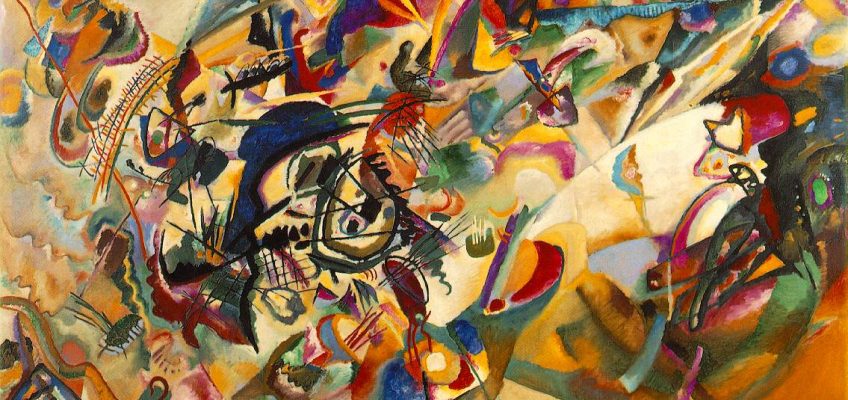
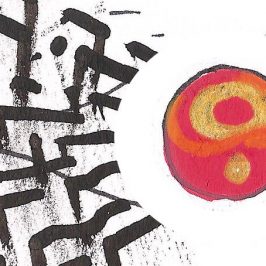


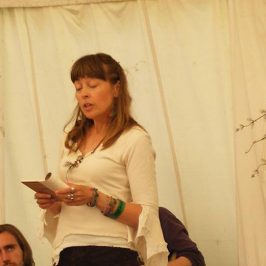
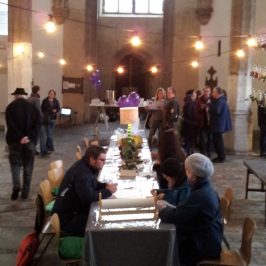
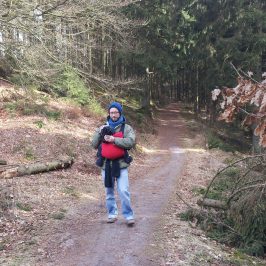
Leave a Reply